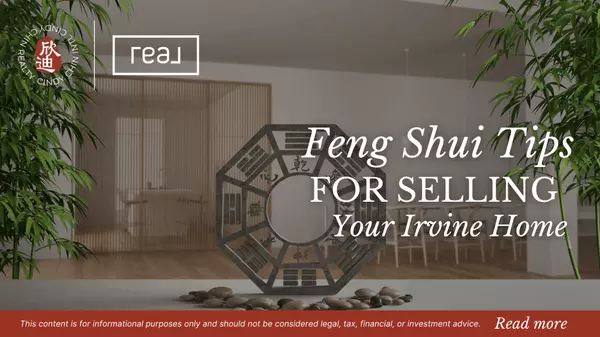To Sell, or Not To Sell

How to sell your home for Top Dollar

1. Price your home to sell
a) Setting the right price for your home is the single most important decision you will make when you decide to sell. Go too high and you risk turning off every buyer in the marketplace, go too low and you leave money on the table. By doing your homework of researching the market by visiting or checking out your competitors in the market. Be tough and honest with yourself. Or choosing a reputable listing agent with strong track record is the key to your success. An excellent listing agent can gauge the price well and sell it fast for you.
b) Use price points
Buyers usually search homes at a price range, for example, $1M to $1.5M, $1.5M to $2M. It would be silly if you price your property at $1.1M or $1.6m or $2.1M.
c) Consider price range
Another pricing technique that may be the ticket to more showings and more offers is to use Price Range. It is a pricing technique in which you choose a listing price based on what you would sell for today if a buyer wrote you a check. You then choose another lower price – one that you wouldn’t reject if offered but would use as a starting point negotiate towards some middle ground. So instead of listing your home at a specific price of $2,000,000 dollars, you list the home between $1,800,000 and $2,000,000.
d) Significantly over-pricing your property is a waste of time
For some unrealistic sellers they want to sell their home 20% or more above the market rate or comps. This is pointless unless the buyer is all cash buyer! For buyers who intend to take a loan; the lender will not be able to appraised the property value to match what the seller wants. Most likely the buyer can’t sign off the Appraisal Contingency and the deal will fail through unless the buyer is willing to put in more cash to make up the difference.
2. Consider minor renovation for maximum value
Not all home improvement projects are created equally. The impact of a project or upgrade varies based on the market you’re in, and you’re existing home value. Some projects like adding a pool or outdoor BBQ and Bar set tend to have bigger increases for more high end homes, while projects like replacing with wood flooring, kitchen or bathroom remodel tend to have a bigger increase for less expensive homes.
3. Allow buyers to visualize themselves in your home
a) Depersonalize the decors; b) Declutter the room; c) Neutralize the color of your home. Remove your personal items, family pictures, religious stuff. Showing your home on your own is a bad idea; leaving the buyer little room for making honest comments about what they don't like or what they'd change. Don’t stay in the house while the buyers are there, give them room. Avoid clutter and knick-knacks. Change colorful rooms to neutral colors and place a few carefully chosen items to add warmth and character. Overall, allow buyers to visualize themselves in your home.
4. Stage the home & Use curb appeal
Appearance is critical. Buyers won’t pull the trigger unless they become emotionally invested in your home. To help build a stronger first impression start from the outside first by working hard to improve your home’s curb appeal. Next move inside and stage each space by creating a focal point and a story for each room. A set dining table, a book by the bed, or a game in the kids room are all simple examples of staging. Appearances Do Matter - Make them Count!
5. Get it squeaky clean and take out the deal killer odors
Scrub, scour, tidy up, straighten and get rid of the clutter. Declare war on dust, repair squeaks, and replace the light switch that doesn't work. Spackle and paint any minor cracks that might concern a buyer that your home has settlement or foundation issues. Clean the carpets. Remember, you're not just competing with other resale homes...there may be new homes available at your price point. Those have that "new car feel" about them....and typically offer a 1 year warranty from the builder. This creates piece of mind for most any buyer, and insurance is typically cheaper. Traces of food, pets and smoking odors can kill deals quickly. You may have lived with the odors long enough that you no longer notice them. If there's any question in your mind, ask a friend or relative to visit your home----and INVITE their honest opinion without being offended.
6. Learn to fail fast & Become a quick learner
If something isn’t working, successful sellers have the strength to learn fast by making adjustments to their strategy quickly. For instance, if after implementing your marketing plan buyers don’t begin to view your home on a regular basis, this is a clear indication (a red flag) that the market is rejecting your price. There is only one solution: lower your price. On the other hand, if you have steady stream of buyers touring your listing, yet you aren’t receiving any offers, this is often a symptom of buyers rejecting, not the price, but the home itself. Something about the home is turning them off. Savvy sellers attempt to identify the problem and take proactive action to correct it.
7. Learn what motivates your buyer
The better you know your buyers, the better you can use the negotiation process to your advantage. This allows you to control the pace and duration of the process. and perhaps the price! As a rule, buyers are looking to purchase the best affordable property for the least amount of money. Knowing what motivates them enables you to negotiate more effectively. For example, does your buyer need to move quickly ? If so, you're in a better position to negotiate a stronger selling price. Quite often, when buyers would "like" to close is when they "need" to close. Knowledge of their deadlines creates a negotiating advantage for you. If the buyer's' home is already under contract, they are likely under a "time crunch" in finding another home. This can put you in a stronger position to negotiate your price and terms.
8. Keep Emotions in check during negotiation
Let go of the emotion you've invested in your home. Be detached, using a business-like manner in your negotiations. You'll definitely have an advantage over those who get caught up emotionally in the sale. It's a BIG decision to sell a home and move. Be prepared for the emotions that will accompany the selling process. Many buyers believe if they don't offer low enough to insult you, they are poor negotiators. Don't be upset or take it personally. Evaluate the offer objectively. Require a sufficient deposit, review the strength of the offer based on the down payment, mortgage amount, closing costs and check these details against the buyer's preapproval letter. Most buyers EXPECT a counteroffer, so turn the table around by countering back. You can counter a low offer or even an offer that's just under your asking price.
9. Negotiate the BEST offer not just the highest offer
It’s natural to want to grab the highest offer you receive for your home, especially if it’s more than your asking price. But don’t jump without reviewing the terms. Most offers include contingencies, which are a set of terms in your contract that allow either the buyer or seller to cancel the agreement if those terms aren’t met.
Here are a few examples of contingencies a buyer might include in their offer:
- Financing contingency
A financing contingency allows a buyer to cancel their offer if they aren’t able to qualify for a mortgage. If you accept this contingency as a seller, you run the risk of wasting time by having to relist your home and start the process all over again. - Home sale contingency
The home sale contingency is a way for a buyer to ensure they will have the proceeds from their existing home before they purchase yours. The risk here is that the buyer’s timing doesn’t align with yours or the buyer isn’t able to sell their home, giving them the right to walk away. - Inspection contingency
The inspection contingency provides a way for the buyer to negotiate for repairs, ask for an extension of the closing date, or even rescind their offer if the home inspection turns up any major issues that weren’t disclosed. This is a common reason why pending sales fall through.
In hot markets, it’s common for buyers to waive contingencies as a way to “sweeten” the deal. If there’s not a lot of competition for your home, buyers may ask for more contingencies since they run a lower risk of their offer not being accepted. Based on the contingencies included, the highest offer may not yield the most money, especially if the timeline for closing doesn’t align with yours. Or in some cases the buyers’ financial strengthen is not as strong; they might not be able to get loan approved. It will be a waste of time and major opportunity cost for the seller.
10. Seize the Golden Selling Window
Remember, buyers are conscious about how long your home's been on the market. The longer it sits, the lower the opening offer is likely to be. Price your home carefully. Once listed on the market the first 3-4 weeks are the golden period to sell; if you don’t strike a deal then and want to wait for a better offer to come along; it’s usually not the case. Often times the offer price would be lower than before, the longer it sits on the market; worse it would look.
11. Offer a bonus to buyer agents
The agent who brings a buyer to your home is typically referred to as the selling agent or the buyer’s agent. In a market crowded with inventory many sellers find it wise to provide an incentive to motivate these agents to show their home more frequently. While you may cringe at paying real estate brokers even more money, the fact is it may provide just the push they need to work a little harder to sell your home for top dollar. E.g. $10K extra is the buyer agent can bring you an acceptable offer by when.
12. Hire an aggressive listing agent
Not all listing agents are created equal. To find an aggressive full time agent, take the time to research the market, talk to friends, neighbors, and colleagues about who they recommend, and interview multiple agents before making a hiring decision. Check the listing agent’s track record, not only how many homes she or he sold; but also at what price point, what’s the % of the listing agent sold homes at or above asking price? If the listing agent constantly sold way below the asking price or below other homes in your neighborhood; then that’s a bad sign.
If you are ready to make a move and sell your house; give us a call at 949 698 0117 or drop us a line at info@CindyChinRealty.com, we are here to help and guide you through your home selling process and make it worry and hassle free for you. With Annual Sales Volume from 2020 our Founding Principal Cindy Chin has been voted as Top 1% ALL-STARS Real Estate Agent in Orange County by Orange Coast Magazine again. You are certainly in a good hand!
Cindy Chin Realty Int'l
DRE 01921826 TF: 877.622.7789
Categories
Recent Posts












